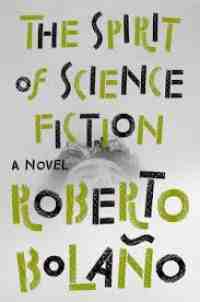Velvet Was the Night by Silvia Moreno-Garcia
 Friday, August 20, 2021 at 6:44AM
Friday, August 20, 2021 at 6:44AM 
Published by Del Rey on August 17, 2021
Velvet Was the Night is a story of Mexican noir. Set in the early 1970s, the novel takes as its background a CIA funded and Mexican government-supported effort to organize private citizens as shock troops (known as Hawks) to attack protesting students. The CIA wanted to suppress communism and the Mexican government wanted to suppress dissent. Those machinations cemented Mexico’s authoritarian oppression and laid the foundation for the Dirty War.
Maite is caught in the middle of that struggle. She isn’t political. She doesn’t feel she’s much of anything. Her days, as she sees them, are dull and meaningless. Her sister berates her for wasting her life. As she turns 30, Maite is a single, insecure woman who devours romance comics, wishing her life were filled with the love and drama she reads about.
Maite can’t afford to pay for her car repairs. She supplements her income as a secretary by looking after her neighbors’ pets when they are away. Maite’s only vice is her occasional theft of a small object from a neighbor’s apartment.
Maite has been feeding Leonara’s cat. She’s vexed that Leonara hasn’t returned from her trip. When Leonara finally calls Maite and asks her to bring the cat and a box to an address, Maite becomes even more annoyed when Leonara doesn’t appear. She decides to track down Leonara so she can get paid. Her quest leads her to a group of wannabe revolutionaries and brings her to the attention of the Hawks and the secret police.
The other protagonist, Elvis, is a Hawk. At 21, he is the right age to blend with and infiltrate student groups. He admires his boss, El Mago, and is more committed to following El Mago than to any political philosophy. Elvis doesn’t mind administering beatings to send a message, but he draws the line at beating women or killing anyone. He’d rather be doing something else with his life but he doesn’t know what else he is capable of doing.
The novel alternates chapters that follow either Elvis or Maite. Their paths intersect when El Mago assigns Elvis to follow Maite. El Mago wants to find some pictures that Leonara has hidden. He hopes that Maite will lead him to Leonara.
Maite and Elvis are linked in unexpected ways, particularly by their passion for music. Elvis is impressed by the record collection he discovers while snooping through Maite’s apartment. Elvis took his name from the obvious source, but he’s also a fan of Sinatra and American standards. Maite enjoys the Spanish versions of those songs. The government has closed singing cafés and banned American rock because it views dancing as a form of anarchy, but the government can’t stop Maite or Elvis from enjoying music.
As one would expect of authoritarians and revolutionaries, none of the characters trust each other. The revolutionaries correctly believe they have an informant in their midst. An agent of the secret police named Anaya is sure that his sources are all lying to him. The Hawks and the secret police share the goal of disrupting perceived communists but they share nothing else. A Russian KGB agent adds another level of intrigue to the story. A relative of Leonara seems to want her dead. Elvis becomes increasingly disillusioned as his friends die, particularly when he learns the identity of one of the killers.
For Elvis, the story is one of intellectual disenchantment and personal growth as he begins to realize that the Hawks and their methods pose a greater threat to Mexico than the harmless student protestors. For Maite, the story is one of romance followed by inevitable heartbreak followed by the unlikely possibility of a new romance. The protagonists’ stories are simple, but they are built on strong characterizations and on the novel’s complex noir setting.
RECOMMENDED
